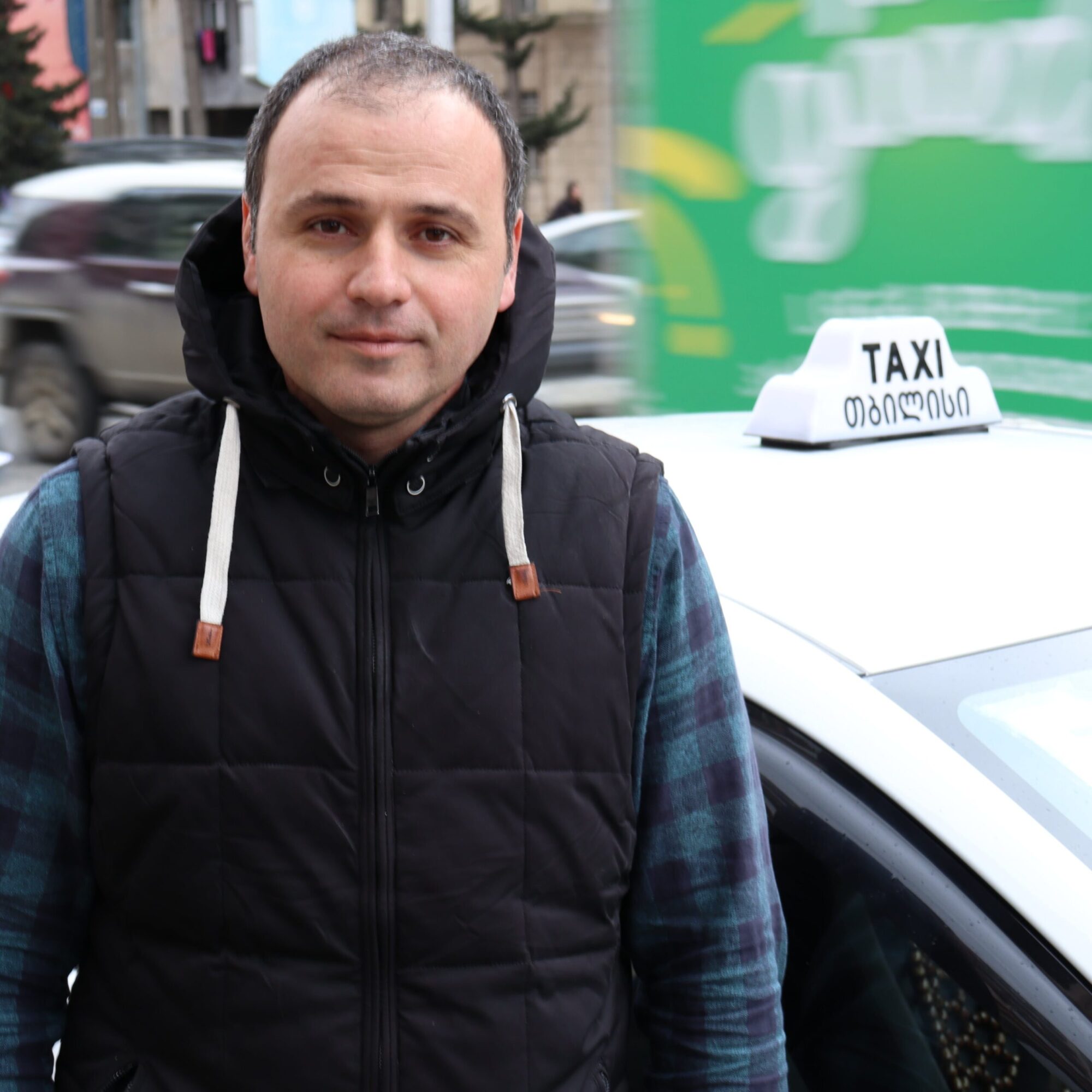This ILAW Network issue brief, researched and drafted by Dr. Barbora Černušáková, maps some of the legal initiatives and strategies undertaken by workers and unions, and outlines opportunities for workers to challenge breaches of technology-driven labor rights through...
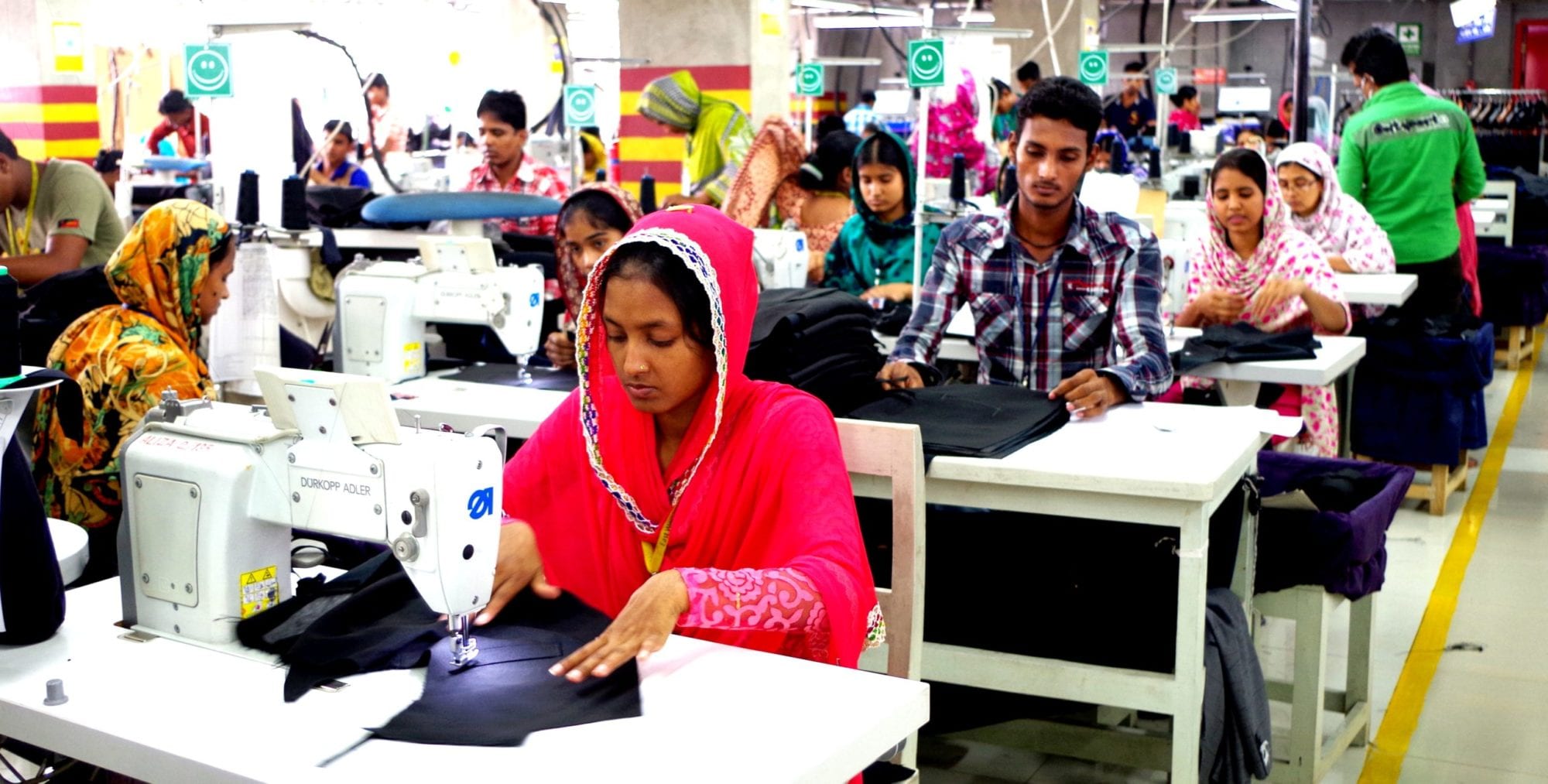
The Solidarity Center works to ensure all workers, such as Bangladesh garment workers, have access to their legal workplace rights. Credit: Solidarity Center/Balmi Chisim
The Solidarity Center works to ensure that all workers have rights protected under international law and have access to effective legal remedies if those rights are violated.
The Solidarity Center works with workers, unions and other organizations around the world to rewrite the rules so workers can form unions and take collective action to promote their rights and be free from exploitation. The Solidarity Center has assisted workers and unions in countries such as Bangladesh, Cambodia, Guatemala, Myanmar, Thailand and Ukraine to analyze legislation and develop strategies to defeat repressive legislation and promote laws and regulations consistent with international law.
Our work supports novel litigation at the national and regional levels to expand rights to workers and unions. For example, the Solidarity Center has supported constitutional litigation to ensure domestic workers in South Africa have access to the national workers compensation fund, and is working with lawyers in Bangladesh to support workers in challenging the use of false criminal charges to dismiss and silence workers. The Solidarity Center also supports efforts in regional human rights courts to promote the rights of informal economy workers in Africa and to hold governments accountable for anti-union violence in the Americas.
The Solidarity Center also is working to build accountability for multinational firms in global supply chains that remain largely beyond the reach of the law in countries where their suppliers are located and in their home countries. The lack of accountability is a major driver of worker exploitation in supply chains, including wage theft, unsafe workplaces, violence against workers and attacks against unions.
Educating workers on their rights and how to use them in the workplace is also a key component of our work. Through the International Lawyers Assisting Workers Network (ILAW), we are building a legal community and increasing the capacity of lawyers and activists to effectively use domestic, regional and international laws and institutions. The ILAW Network brings together more than 400 lawyers in some 55 countries.
Georgia App Worker: ‘Solidarity and Unity in Protecting our Rights Are Essential:’
In the face of intense pushback by exploitive global app-based companies operating in the Republic of Georgia—where workers are beholden to algorithmic whims to earn their uncertain livelihoods—unions are fighting for platform worker rights through advocacy campaigns,...
Statement: Solidarity Center Denounces Violent Attack on Nigerian Union Leader, Workers
Nigeria Labor Congress (NLC) President Joe Ajaero was beaten and arrested November 1 as workers rallied to protest unpaid wages in Imo state in southeastern Nigeria. Police reportedly beat Ajaero and assaulted protesting workers with machetes and confiscated their...
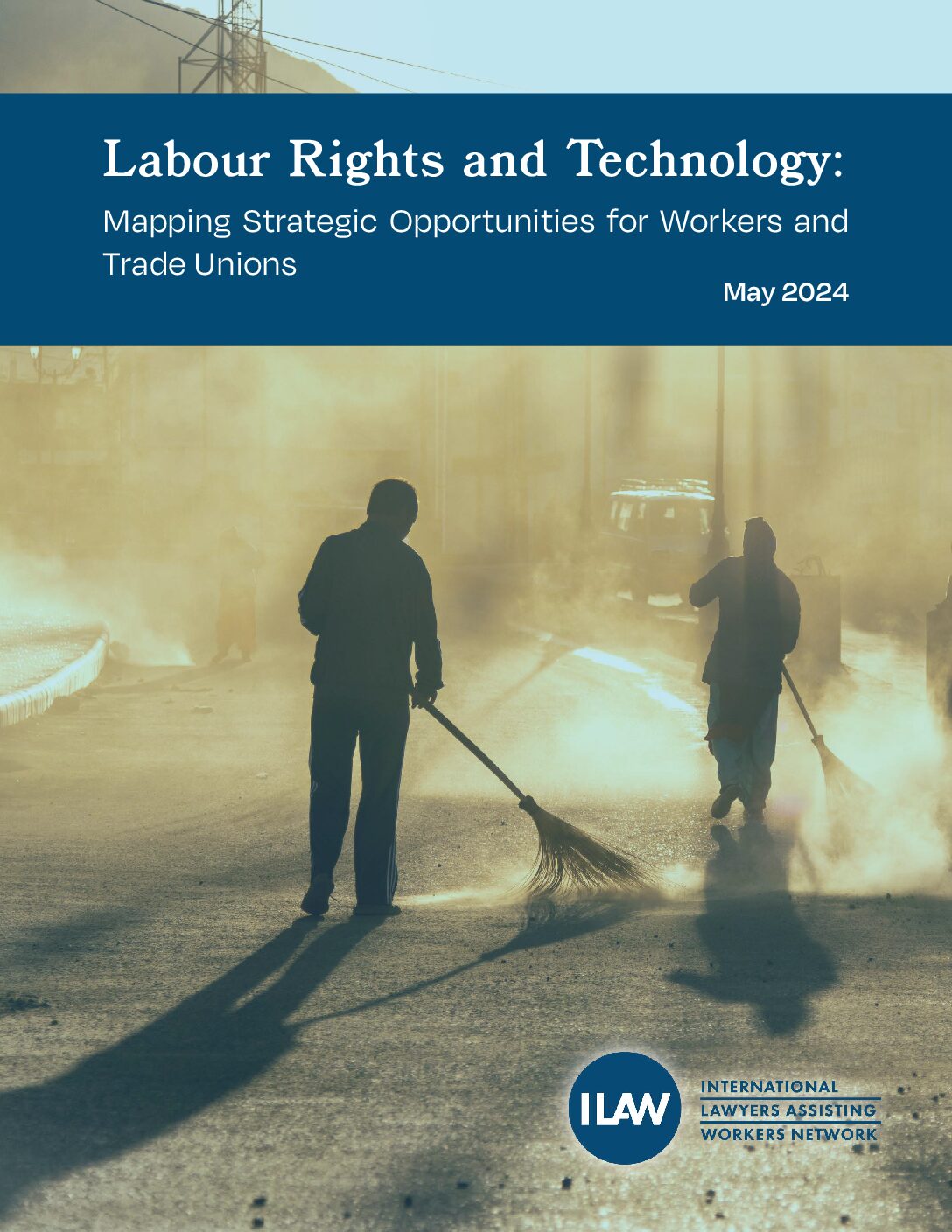
Labor Rights and Technology: Mapping Strategic Opportunities for Workers and Trade Unions
This ILAW Network issue brief, researched and drafted by Dr. Barbora Černušáková, maps some of the legal initiatives and strategies undertaken by workers and unions, and outlines opportunities for workers to challenge breaches of technology-driven labor rights through...
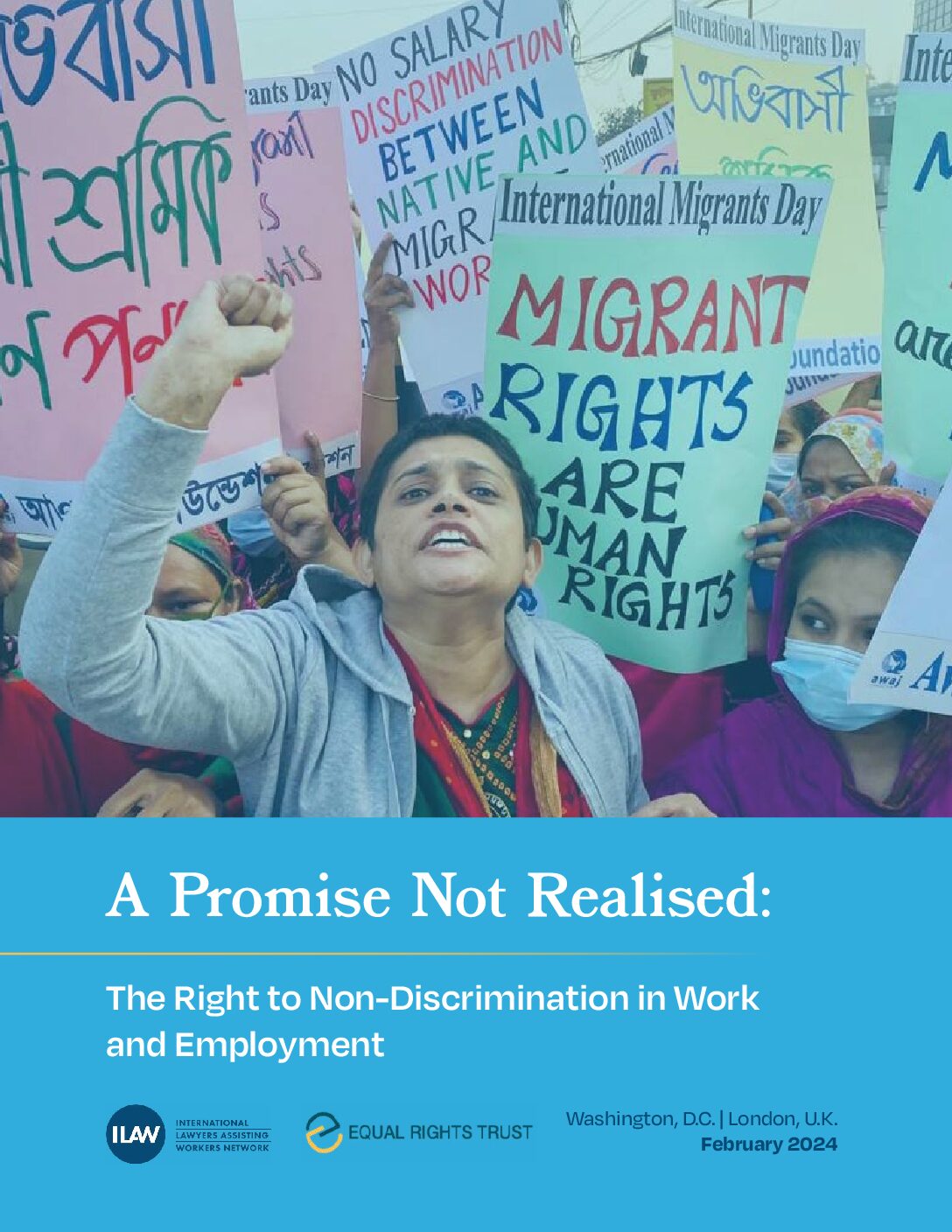
A Promise Not Realised: The Right to Non-Discrimination in Work and Employment
The ILAW Network is pleased to present our new report, A Promised Not Realised: The Right to Non-Discrimination in Work and Employment – a collaboration of the ILAW Network and Equal Rights Trust (ERT). This issue brief focuses on two main questions: (1) why does...
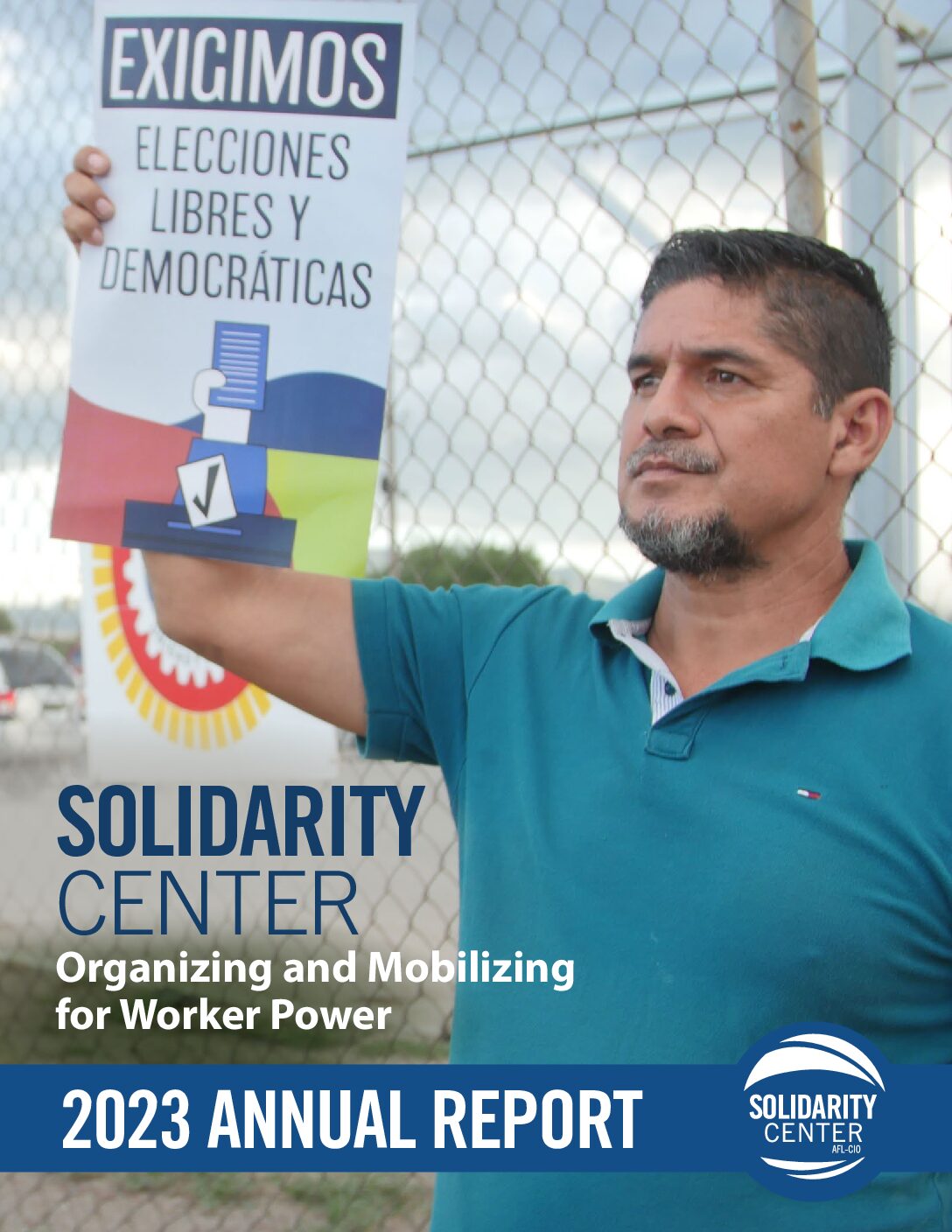
2023 Annual Report
In 2023, the Solidarity Center supported workers as they took on exploitative multinational companies and robot algorithms, demanded their governments tackle social ills and deliver on promises, and fought for justice in environments increasingly dangerous to those...
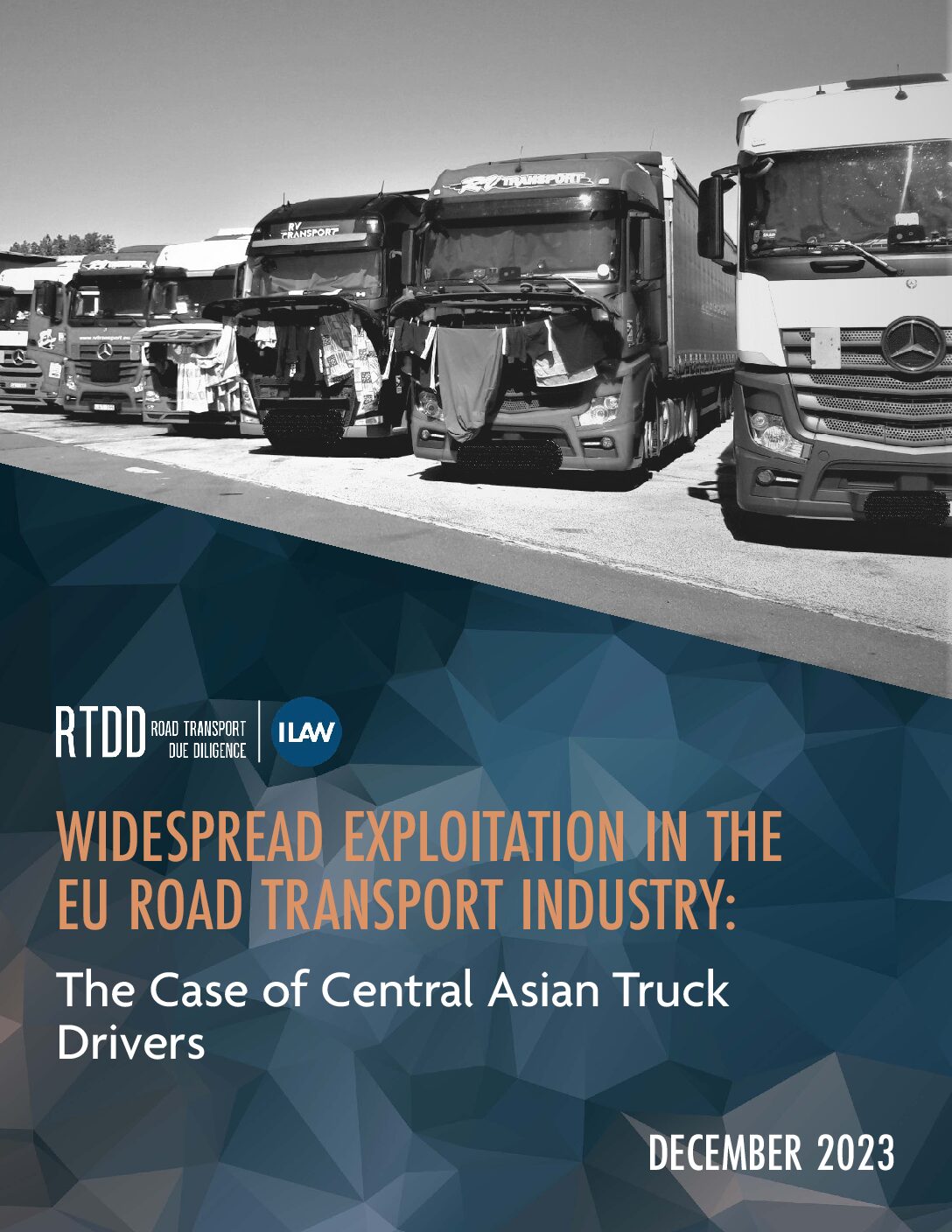
Widespread Exploitation in the EU Road Transport Industry: The Case of Central Asian Truck Drivers
The ILAW Network is pleased to present our new report, Widespread Exploitation in the EU Road Transport Industry: The Case of Central Asian Truck Drivers, written by Imke van Gardingen and Edwin Atema of Road Transport Due Diligence (RTDD). This research was supported...
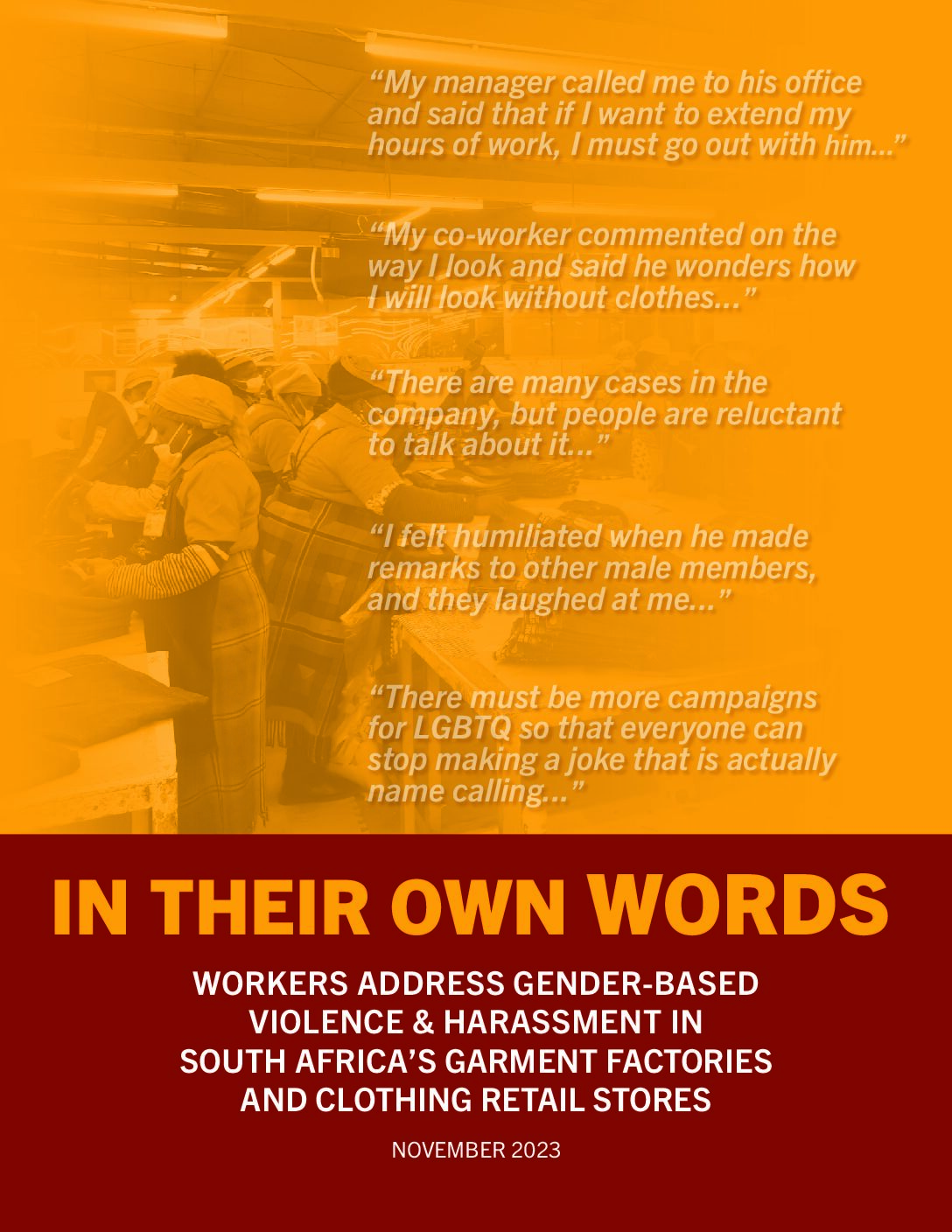
In Their Own Words: Workers Address Gender-Based Violence & Harassment in South Africa’s Garment Factories and Clothing Retail Stores
In South Africa, 98 percent of women garment and retail workers surveyed in 2022 said they had experienced one or more forms of gender-based violence or harassment, including physical abuse, unwanted sexual advances, psychological abuse, bullying and rape. To better...
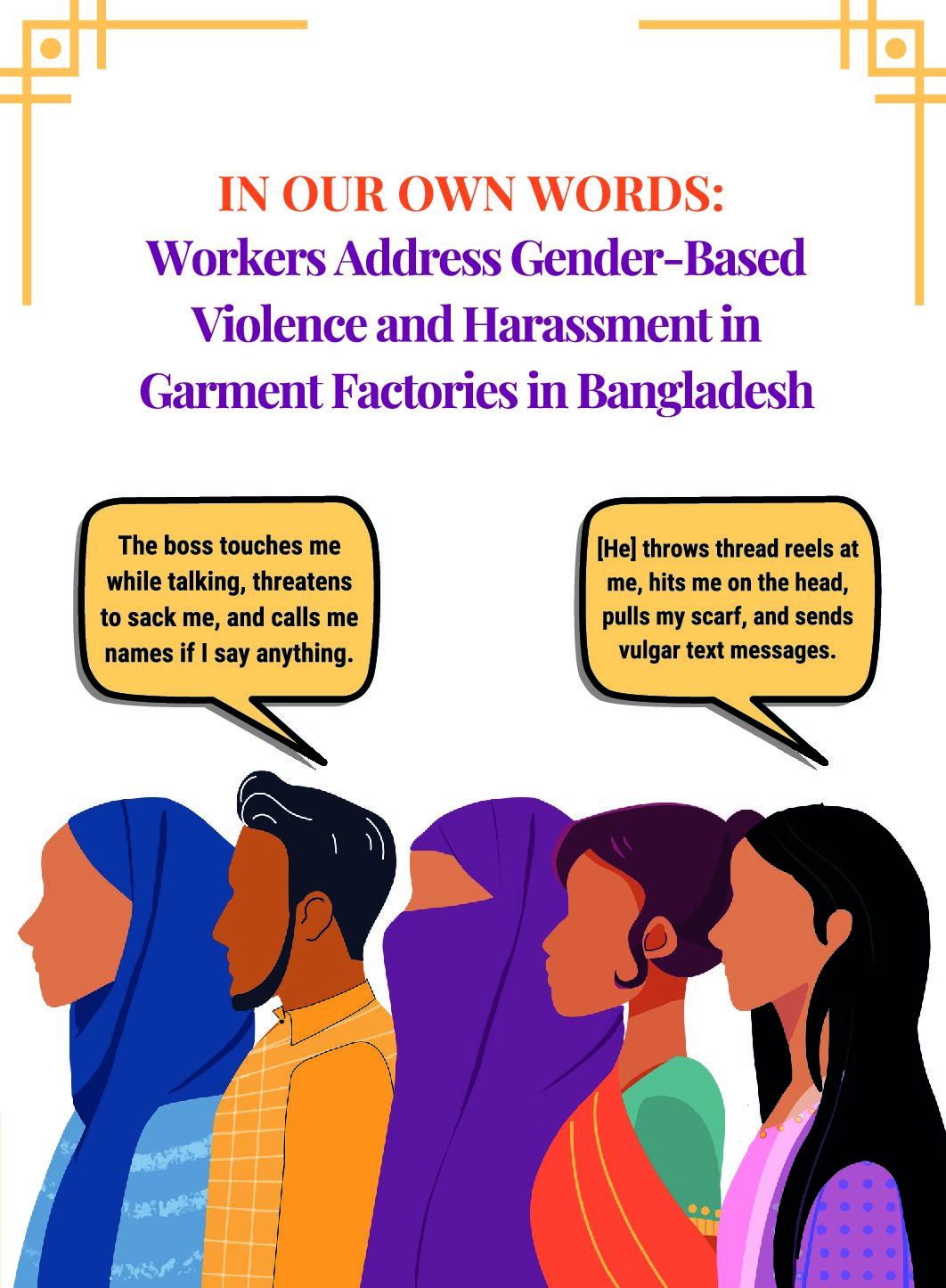
In Our Own Words: Workers Address Gender-Based Violence and Harassment in Garment Factories in Bangladesh
In Bangladesh, 80 percent of women garment workers surveyed in 2019 reported they had experienced or witnessed sexual harassment, molestation or assault, endured extreme verbal abuse or witnessed a factory manager or supervisor abuse and harass other women in the...

